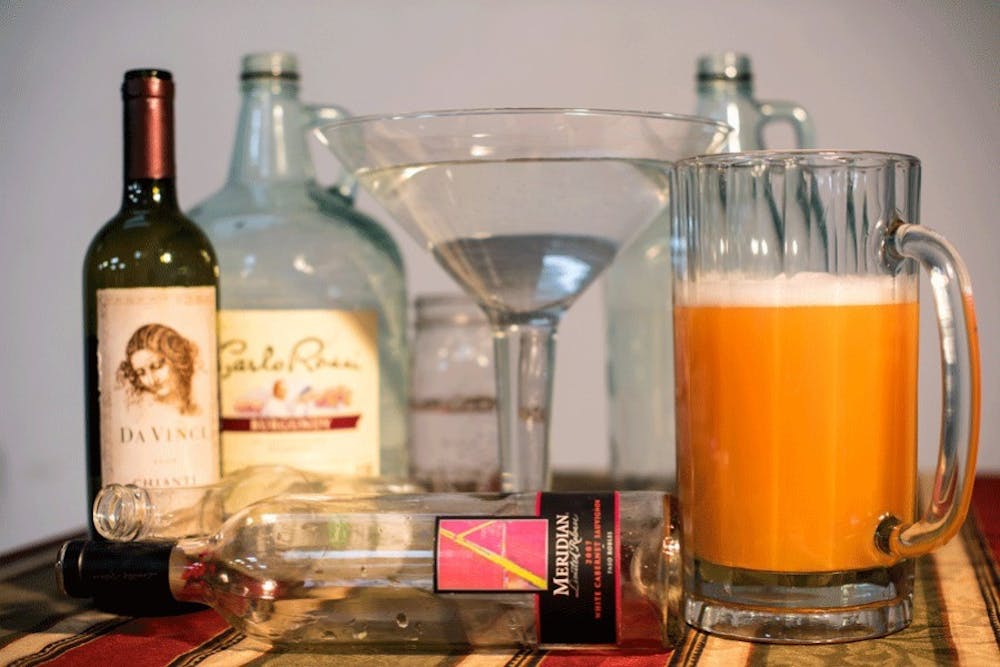By Bonnie Meibers, For The Miami Student
Miami University's Associated Student Government (ASG) recently approved a bill asking the university to explore the possibility of selling alcohol to spectators 21 and over at sporting events.
The investigation proposed in the Feb. 24 bill could potentially include conversations with other institutions, like Kent State or Akron University, which have already implemented this policy, to find out whether bringing alcohol into the stadium has benefited those universities and their students.
"Essentially, the bill is looking to call forth investigation for the option to bring alcohol into stadiums," Kevin Krumpak, ASG secretary for Off-Campus Affairs, said.
Deedie Dowdle, associate vice president for University Communications and Marketing, said the topic would need further study, discussion and community input before any change in policy would be considered. President David Hodge has not yet seen the bill and has no comment at this time.
The Miami University administration has traditionally opposed the sale of alcohol at sporting events on campus. However, on Friday Hodge will meet with student body president, Cole Tyman, to discuss the matter.
ASG decided to support alcohol sales at athletic events because they believe bringing alcohol into the stadiums will have positive effects.
The university stresses drinking responsibly. Tyman, ASG Senator Patrick McFadden and Krumpak, who co-authored the bill, agreed selling alcohol at athletic events would challenge students who are of age to be an example of what responsible drinking looks like.
"I think it's important that we provide a place for underclassmen to see responsible drinking taking place," McFadden said.
Tyman, McFadden, Krumpak and many others believe that bringing alcohol into the stadium would be a positive alternative to binge drinking in Uptown Oxford.
ASG argues that selling alcohol at sporting events would be positive, as long as the buying and selling of alcohol is controlled. The stadium would be a quasi-monitored place for students to responsibly drink.
"Students would have to uphold themselves more [in the stadium] than if they went Uptown," Krumpak said.
Enjoy what you're reading?
Signup for our newsletter
Faculty, staff and community member presence among students who chose to drink at sporting events would make most think twice about their actions.
Miami University Police Chief John McCandless said that he has seen some universities have great success with selling alcohol during athletic events, while others have had several problems. MUPD, however, has not said one way or another whether they are in support of the bill.
"Whatever the decision is, we'll do what we have to do to make it safe," McCandless said.
Every year, ASG is asked how to get more students to attend home games. Though it cannot be statistically proven, the co-authors of the bill believe selling alcohol at sporting events could also improve student attendance at football and basketball games.
"It won't make less people go to games," Krumpak said.
To remain a Division I team, home football games must have at least 15,000 people attended per season. This season, Miami's attendance was not much more than that. If Miami is to maintain its Division I status, game attendance must increase. Nonetheless, this bill is not a way of "begging" students to go to games, ASG said.
"Nothing is going to raise attendance numbers like doing well," Tyman said.
A third reason Tyman wants to back selling alcohol during athletic events is that it could turn into a lucrative business venture for the university.
"It opens up the opportunity for increased revenue," Tyman said.
The passing of the bill, and thus further investigation, will depend on the passage of a document drawn up by the Miami University task force. The university-formed task force consists mostly of faculty, administration and two students and its duty is to lay out Miami University's alcohol policy. This document outlines the philosophy of how the administration will consider any future decision regarding alcohol. If the task force document is passed, it would be the judgment criteria for passing the bill.
"I would consider the task force document a foundation of any alcohol-related decision Miami University makes," Krumpak said.
While Hodge has approved neither the task force document nor the bill, according to Krumpak, the bill does not go against anything that the task force document has laid out.




